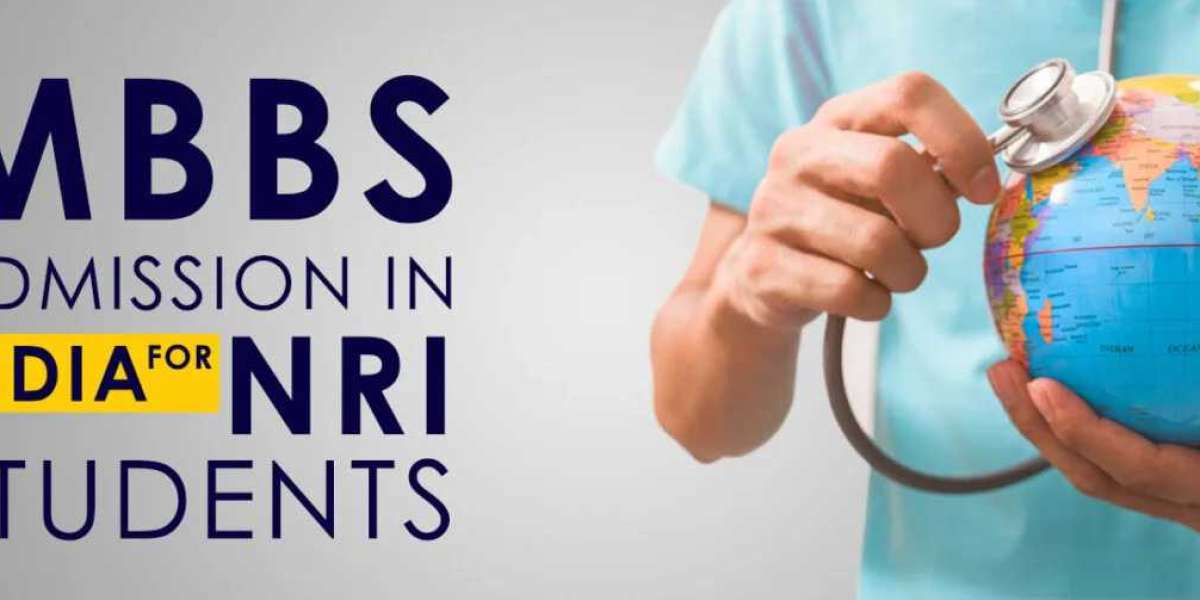India is a popular destination for medical education, attracting students from across the globe due to its high-quality education, advanced facilities, and affordable fees compared to Western countries. For Non-Resident Indian (NRI) students, pursuing an MBBS degree in India offers a unique opportunity to benefit from India's prestigious medical institutions while staying connected to their cultural roots. This article provides a comprehensive guide on MBBS admission in India for NRI students, covering eligibility criteria, application processes, top medical colleges, and other essential details.
Why Choose MBBS in India for NRI Students?
High-Quality Education: Indian medical colleges are renowned for their rigorous academic programs and high standards of teaching. Students receive extensive training in medical sciences and clinical practice, ensuring they are well-prepared for a global medical career.
Affordable Fees: Compared to medical colleges in Western countries, fees for MBBS courses in India are relatively lower. This makes India an attractive option for NRI students seeking quality education at a more affordable cost.
Recognition and Accreditation: Degrees from Indian medical colleges are recognized by major international medical councils and organizations. Graduates are eligible to practice medicine in many countries worldwide after completing the necessary licensing exams.
Cultural and Familial Ties: For NRI students of Indian origin, studying in India allows them to stay connected with their cultural heritage and family, providing a sense of familiarity and support.
Diverse Clinical Exposure: India's diverse population offers extensive clinical exposure, enabling students to gain experience in treating a wide range of medical conditions and understanding different healthcare practices.
Eligibility Criteria for NRI Students
NRI students seeking MBBS admission in India must meet the following eligibility criteria:
Educational Qualifications: Candidates must have completed their 10+2 or equivalent examination with Physics, Chemistry, and Biology as core subjects. English is also a mandatory subject.
Minimum Marks Requirement: Similar to Indian students, NRI candidates must secure a minimum of 50% aggregate marks in Physics, Chemistry, and Biology. This percentage may vary slightly depending on the medical college's specific requirements.
Age Limit: Candidates must be at least 17 years old by December 31 of the admission year. The upper age limit for candidates is generally 25 years, with a relaxation of up to 5 years for reserved categories.
NEET UG Qualification: NRI students must qualify for the National Eligibility cum Entrance Test (NEET) UG. NEET UG is a mandatory entrance examination for MBBS admissions in India.
NEET UG Exam Overview
The National Eligibility cum Entrance Test (NEET) UG is a crucial exam for MBBS admission in India. It is conducted by the National Testing Agency (NTA) and assesses candidates' knowledge in Physics, Chemistry, and Biology.
Key Aspects of NEET UG:
Exam Pattern: NEET UG consists of 180 multiple-choice questions (MCQs) divided into three sections: Physics (45 questions), Chemistry (45 questions), and Biology (90 questions). The exam is conducted in pen-and-paper mode and lasts for 3 hours.
Marking Scheme: Each correct answer earns 4 marks, with a penalty of 1 mark for incorrect answers. Unanswered questions receive no penalty.
Syllabus: The syllabus is based on the NCERT curriculum for classes 11 and 12, covering essential topics in Physics, Chemistry, and Biology.
Scoring and Ranking: NEET UG scores determine the candidate's rank, which is used during the counseling process for seat allocation in medical colleges.
Importance of NEET UG:
NEET UG is the sole entrance exam for MBBS admission in India, making it highly competitive. A high score is essential for securing a seat in a reputable medical college.
NEET UG scores are also used for admission to other medical courses, including BDS (Bachelor of Dental Surgery), BAMS (Bachelor of Ayurvedic Medicine and Surgery), BHMS (Bachelor of Homeopathic Medicine and Surgery), and BVSc (Bachelor of Veterinary Science).
Application Process for NRI Students
NEET UG Registration: NRI students must register for NEET UG by filling out the application form on the NTA website. The application process involves providing personal details, uploading necessary documents, and paying the exam fee.
Preparation and Examination: Preparation for NEET UG is crucial. Many students choose coaching classes or online courses to enhance their preparation. The exam is typically held in May, with results announced a few weeks later.
Counseling and Seat Allotment: After NEET UG results are declared, the counseling process begins. For NRI students, the admission process may involve:
- Direct Admission: Some medical colleges offer direct admission to NRI students based on NEET UG scores. These seats are typically categorized as NRI or Management quota seats.
- Counseling: NRI students may also participate in the counseling process conducted by state authorities or individual medical colleges. The counseling process includes seat allocation based on NEET UG ranks.
Admission Formalities: Once a seat is allotted, NRI students must report to the respective medical college, complete the admission formalities, and pay the required fees. This includes providing original documents for verification, such as NEET scorecards, 10+2 mark sheets, passport, and visa.
Fee Structure: NRI students often pay higher fees compared to Indian students, especially if admitted through the NRI quota. Fees for MBBS courses in India can range from INR 10 lakhs to INR 25 lakhs per year, depending on the college.
Top Medical Colleges in India for NRI Students
Several prestigious medical colleges in India offer excellent education and facilities for NRI students. Some of the top institutions include:
All India Institute of Medical Sciences (AIIMS), New Delhi: AIIMS is renowned for its high standards in medical education and research. It is one of the most sought-after institutions for NRI students.
Christian Medical College (CMC), Vellore: CMC offers a world-class medical education and clinical training, making it a preferred choice for many NRI students.
Kasturba Medical College (KMC), Manipal: KMC is known for its modern infrastructure and experienced faculty, providing a comprehensive medical education.
Jawaharlal Institute of Postgraduate Medical Education and Research (JIPMER), Puducherry: JIPMER offers a high standard of medical education and research opportunities.
Armed Forces Medical College (AFMC), Pune: AFMC is known for its disciplined environment and military-oriented medical education.
Maulana Azad Medical College (MAMC), New Delhi: MAMC provides excellent clinical exposure and academic training.
King George's Medical University (KGMU), Lucknow: KGMU is one of the oldest medical institutions in India, known for its extensive clinical training.
Lady Hardinge Medical College (LHMC), New Delhi: LHMC is a leading institution for women, offering strong academic and clinical programs.
Conclusion
MBBS admission in India for NRI students offers an opportunity to receive high-quality medical education at a more affordable cost compared to Western countries. By understanding the eligibility criteria, preparing for NEET UG, and navigating the admission process effectively, NRI students can secure a place in some of India’s top medical colleges. With its excellent educational standards, global recognition, and diverse clinical exposure, pursuing an MBBS degree in India can be a valuable step toward a successful medical career.







